The genius of small roles. Vladimir Pavlovich Basov
V.P. Bass
Vladimir Pavlovich was born on July 28 1923. His mother, the daughter of a Pokrovsky priest, was called Alexandra Ivanovna, and his father was a Finn by nationality and a philosopher by education - Pavel Basultainen. Permeated by the ideas of the revolution, he chose the path of a regular military officer of the Red Army. The party pseudonym for him, who later changed his last name, was Basov. Shortly after the wedding, the philosopher, who never became a bookworm, was sent to Central Asia. While Basov fought there for the establishment of Soviet power, his young wife became a bookmaker. The booksellers went to the deaf Soviet villages and there taught the local people literacy and writing. In one of these trips in the village of Urazove (Belgorod region) she had a son, named Vladimir. The appearance of the child did not at all cool the educational fervor of the young Komsomol member. Together with the baby, Alexandra Ivanovna continued on her way, passing almost all areas of the central Russian strip and the entire Volga region. Subsequently, Vladimir Pavlovich said that the first acquaintance with the most beautiful places, outlined by the classics of Russian literature, began for him not with printed words, but with paintings seen firsthand.
In the end, Alexandra Ivanovna arrived at her husband. Pavel Basov, leading the fight against the Basmachis, served at the frontier post located near the town of Kushka. Difficult everyday life of the frontier detachment began to flow, and while Basov Sr. repulsed the attacks of the gangsters, his wife worked in a commune for the children of military personnel. Volodya went to school at the age of seven, but his studies seemed terribly boring - the knowledge gained from his mother was much richer and deeper. In 1931, Pavel Basov heroically fell in a battle with the Basmachis, and the orphaned family was forced to move to the city of Zheleznodorozhny, where Alexandra Ivanovna’s brother lived. At 1932, a well-read and educated Vladimir was accepted into the third grade of a local school immediately after the exam results. However, soon his mother was appointed to the editorial office of one of the newspapers of the Kalinin region, and the fourth class Basov graduated from Kashin. On summer vacation, he went to his aunt in Abkhazia, and there, in New Athos, spent two academic years. And the seventh grade Vladimir spent already in the village of Alexandrov (Gorky Region), where Alexandra Ivanovna again worked as a bookman. Soon, they moved to Moscow together, where Basov finally graduated from high school.
It should be noted that the young man from an early age was distinguished by stunning artistry. Vladimir Pavlovich himself recalled that the desire to play was manifested in facial expression - as a child, he adored making faces in front of the mirror, introducing himself as a hero of a recently read book, watched a play or a movie. Later, at school, Basov gladly recited poems from the stage and in his faces represented literary and dramatic stories. In addition, the young man perfectly painted, knew by heart many works, and also tried to write poetry. In the last year of schooling, Vladimir went to classes at the drama school and often visited backstage at the Moscow Art Theater. From the lighting box, the young theater-goer saw the Days of the Turbins and the Blue Bird for the first time. And in the studio itself, Vladimir managed to play the role of Khlestakov in the "Inspector".
The graduation party of Basov fell on a terrible and memorable day for our country - 22 June 1941. Boys and girls were preparing to enter adult life, but instead of working suits and overalls, time gave them a uniform of a protective color. The very next day, Vladimir, like many other peers, stood in line at the draft board. As a volunteer, he went to the front and went through the entire terrible school of war — he led an artillery battery, worked at the headquarters of the artillery division, went hungry and lost friends, fought with himself, with his weaknesses and fears. Subsequently, he said: “During the protracted battles, the land was dawning from artillery blows from both sides. You look out of the dugout and the ant cannot survive in this hell. I still remember the bench. Seven sit on it. Sitting on the edge goes to hell. The task is to find a cliff, restore a connection, return. If the person returns, sits on the bench from the other end. Again the cliff, is the next. And the battle is fiercer. It remains six, then five, four, three ... The queue is strictly observed - it is an unwritten law. "
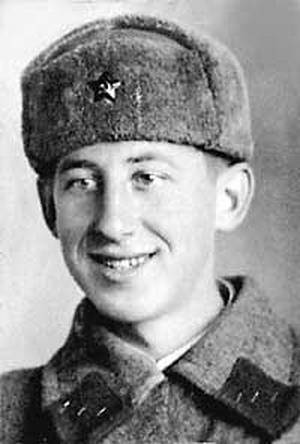 In twenty years, Vladimir Pavlovich was awarded the medal "For Military Merit", and he celebrated Victory Day in the Baltic States in the rank of captain. Basov talked about the war: “She took from our generation many of the joys of youth. We didn’t sit with our beloved girls on benches, didn’t read them poems, didn’t manage to choose a profession, didn’t feel the exciting happiness of changing school days to students ... The war became our universities. And my generation received a true certificate of maturity at the walls of the Reichstag. ” After the war, the future director served a year in the artillery regiment. His position was quite significant, though difficult to pronounce - the deputy chief of the operations department of the twenty-eighth separate artillery division of the breakthrough of the reserve of the main command. Like his father, Vladimir Pavlovich became a personnel officer, a professional military man, and his superiors were in good standing. However, the dreams of theater and cinema were still warm in it. Even during the war years, Basov, as a Komsomol division, often helped cinema mechanics from the special services to "turn the movie." This is how he recalled this: “Several times a van arrived at our unit. She was placed closer to the front line for cover. At dusk, the scouts unrolled the screen in the neutral zone, and films were launched from the van. At the beginning - for the "seed" - some species: the Volga, fields, birches ... The sounds of music, the speech in the evening air was carried far away, the tapes looked from our side and from the other side. And suddenly Hitler appeared in the screen satirical Martinson. We laughed loudly, but on the other hand, we scribed tracer across the screen. ”
In twenty years, Vladimir Pavlovich was awarded the medal "For Military Merit", and he celebrated Victory Day in the Baltic States in the rank of captain. Basov talked about the war: “She took from our generation many of the joys of youth. We didn’t sit with our beloved girls on benches, didn’t read them poems, didn’t manage to choose a profession, didn’t feel the exciting happiness of changing school days to students ... The war became our universities. And my generation received a true certificate of maturity at the walls of the Reichstag. ” After the war, the future director served a year in the artillery regiment. His position was quite significant, though difficult to pronounce - the deputy chief of the operations department of the twenty-eighth separate artillery division of the breakthrough of the reserve of the main command. Like his father, Vladimir Pavlovich became a personnel officer, a professional military man, and his superiors were in good standing. However, the dreams of theater and cinema were still warm in it. Even during the war years, Basov, as a Komsomol division, often helped cinema mechanics from the special services to "turn the movie." This is how he recalled this: “Several times a van arrived at our unit. She was placed closer to the front line for cover. At dusk, the scouts unrolled the screen in the neutral zone, and films were launched from the van. At the beginning - for the "seed" - some species: the Volga, fields, birches ... The sounds of music, the speech in the evening air was carried far away, the tapes looked from our side and from the other side. And suddenly Hitler appeared in the screen satirical Martinson. We laughed loudly, but on the other hand, we scribed tracer across the screen. ”One fine day, Captain Basov appeared before Marshal of Artillery Mikhail Chistyakov. According to the actor, they said for a long time and basically that everyone has the right to fulfill his dream. As a result, Vladimir Pavlovich was allowed to demobilize. Basov spent all of his severance pay spent on farewell, and bought a civilian coat on his overcoat sold on the market. In Moscow, he - matured, fit, tempered - returned in late August 1947. And in September of the same year, Vladimir Pavlovich was already sitting in the VGIK student audience. The problem of choosing a faculty (directing or acting) was solved by itself - the course that year was made joint acting and directing under the guidance of leading Russian cinema masters Sergey Yutkevich and Mikhail Romm. Together with Basov, such future stars of national direction as Grigory Chukhrai, Vitaly Melnikov, Revaz Chkheidze were engaged in the course ... Film director Vladimir Naumov recalled that time: “Despite the difference in age, all VGIK students were very clearly divided into two groups - those who visited in the war and yesterday's schoolchildren, otherwise called "civilian grouse." All the "soldiers" went in boots and military tunic, and Basov was the brightest among them. A brave, smart officer, always like a string. ”
A prominent figure, Vladimir Pavlovich, by the way, was not only because of his characteristic, memorable appearance. He had a terrific gift to fall in love with the people around him, and even his enemies adored improvisation and jokes. Basov literally gushed forth with ideas, the creative imagination of this man was notable for amazing likelihood, turning the most incredible sketches into realistic portraits, as if peeped from life. In addition, friends noted his striking courage in his judgments, the harshness and directness of his statements on sick issues, both in his profession and in life. The brilliant wit Basov made an indelible impression on the female half of the stream. However, the future director was never a “walker” - he really fell in love. And fell in love, according to the memories of classmates, tightly, behaving like a real man, that is, offering to marry. Already at the end of his first year of study, Basov began dating Rosa Makagonova, one of the most beautiful and visible girls of the course. Actress Nina Agapova, who was among her classmates, recalled: “Our Rosochka was a beauty, albeit of poor health. After the war, she, like many, was diagnosed with tuberculosis. She was fantastically musical, her voice was very beautiful, and she sang herself in all her films ... We were always amazed at how she managed to do everything — to learn and to act in films. After all, Rosa was the first to get married ... First, they lived in Matveyevsky with Basov’s mother, then rented a room, and only then on Mozhaik in the House of Cinema Workers in a communal apartment they got their own. ”
After graduating from the institute, Rosa Makagonov was immediately accepted into the Theater of actor, and Vladimir Pavlovich - at Mosfilm, where he got the job of a full-time director and began shooting his first, really serious film (before that, he had already shot a play "Freeloader"). A new film called “School of Courage” was called, and it was shot by Basov in 1953 along with his friend and classmate, the former war veteran Mstislav Korchagin, who was tragically killed in a plane crash during the shooting. Subsequently, the "School of courage" was awarded the prize "For the best educational film" at the International Film Festival in Karlovy Vary. In the 1954 box office, the film ranked tenth, which was a good result for the debut director. By the way, the future stars of the national cinema Rolan Bykov and Leonid Kharitonov played their first roles in this film.
Already during the filming of the tape, the professional qualities that distinguished the director’s personality of Basov were well manifested. In this man, in the most incredible way, it seemed that the opposite and incompatible properties - rationalism and naivety, severity and inclination to sentimentality, deepening into oneself and phenomenal sociability - seemed to be connected. Director Alexander Mitta once said about him: “The musicians in the profession have the notion of ability - absolute pitch, incredible fluency of fingers. So, in directing, Basov had an absolute ear for a violin virtuoso and Horowitz's fantastic fingers. He had a rich spatial imagination and a phenomenal memory. It was with him that I first saw how the director builds the mise en scene, and then, without changing anything, unfolds it at ninety degrees, because the sun had gone. He did not forget a single take, he had all the material in his head, he mounted it very neatly and clearly. ”
They said that Vladimir Pavlovich immediately put the literary scenario, which had passed all the stages of coordination and familiarization, on the shelf. His own text was concise, like a telegram, entered and left. Basov kept in mind all the rest, saying that “the picture is at first heard by him with an obscure melody, and only over time do the images take shape, the sharpness of the frame”. The young director treated his film crew as an orchestra, where everyone has his own place, his own voice, and his own party. And he conducted this orchestra in a truly virtuoso manner - always remaining the leader, he penetrated into all the details of the process, studied all the film repertory. The people who worked with Vladimir Pavlovich said that, if necessary, he could skillfully make up the actor as a Russian hussar or an English lord. It should also be noted that Basov was the first in Russia to master the technical innovation that came from Germany in the early seventies - equipment for multi-camera shooting. Three cameras installed in different corners of the pavilion were commuted on a common mounting console, allowing you to observe the subject from several points and carry out a rough cut of the already filmed material in the course of the work. Today, this technique does not surprise anyone, but in those years, Vladimir Pavlovich became a pioneer, being the only truly ready to use such a shooting technique. Cameraman Ilya Minkovetsky, who worked with him for a long time, said: “He was a terrific organizer, a real commander, but I never saw Vladimir Pavlovich raise a voice or lose his temper. He wrote little notes, and if the actor did not remember something in the text, he immediately composed a stage scene in which a person could read a piece of paper ... His energy was unprecedented, cosmic power. No one could withstand this tension, this rhythm. Basov suffered the most during the weekend when filming stopped. ” Unlike most of the directors, Vladimir Pavlovich was literally given the green light from the very first steps in cinema, and he produced films one after the other. Among his works of the end of the fifties only are the tapes: “The collapse of the emirate”, “The first joys”, “The extraordinary summer”, “The case at the mine eight”, “Life has passed by”, “The Golden House”.
Unfortunately, in the personal life of the director everything was not so smooth. With his first wife, Rosa Makagonova, he broke up for unknown reasons. There is a version that Basov left when he learned that, due to illness, Rosa could never give him children. Whether this is true or not is unknown, however, at the end of 1956, Vladimir Pavlovich met a fourth-year student at VGIK Natalia Fateeva. In the late fifties, this young and gifted girl was considered one of the most promising actresses of the national cinema. However, the dizziness of success she was not typical. Purposeful and hard-working Natalya Nikolaevna graduated from high school with honors, was the champion of her native Kharkov in long and high jumps, as well as in shot put. In addition, before entering the theatrical institute, Fateeva studied vocal a lot, finding good data from an opera singer. Vladimir Basov met her at VGIK during a search for the performer of one of the main roles in the film "Case at the mine number XXUMX." When he saw a student who came to the test, Vladimir Pavlovich literally lost his head, telling her already at the first meeting: "Marry me." Fateeva, for whom these were the first tests at Mosfilm, took the proposal of a famous director for a joke and she joked herself in reply: “I’ll play with you, then we’ll decide.”
Their romance was developed on the set. Subsequently, Natalya Nikolaevna recalled: “When we met, 21 went to my year, 33 came to him. He was a man in his prime, a bright and brilliant personality. And Basov had ten talents at all. ” By the time Vladimir Pavlovich began his next job, they were already married, and in early February 1959 had a son, who was named Volodya. For about three years, Natalya Nikolaevna worked on a contract at the Yermolova Theater. She was repeatedly invited to the state and promised serious roles, but family concerns did not allow the actress to work productively. Often there were situations when she was not in the mood for rehearsals - there was no one to leave young Volodya, because the “big” Vladimir was also busy on the set.
In 1960, at the time of inviting Vladimir Pavlovich as the director of the film “Battle on the Way,” his second marriage was experiencing a tragic finale. The director of the tape was originally Zakhar Agranenko, but he died during the shooting. Basov was invited to complete the picture, which he successfully did. The tape, which appeared on 1961 screens, only in our country saw forty million viewers, and at the box office it took the sixth place by the end of the year. The film brought Vladimir Pavlovich national recognition and worldwide fame - for many years “Battle on the Road” was the “calling card” of the national cinema - with this film the creative team traveled almost the whole world, except perhaps South America and Australia. Unfortunately, in the personal life of Basov, the success of the “Battle on the Way” could not change anything. Both spouses experienced the tragedy of parting, but if for Natalia Nikolaevna this was her own decision, then for the director the situation was completely different - he was left by the woman he loved. Vladimir Pavlovich’s close friends said that his despair was so great that at some point the director wanted to commit suicide. Fateev and Basov did not part as friends, and although they lived on the same street for many years, Vladimir Pavlovich almost never saw his own son - Vladimir grew up with his grandmother in Kharkov.
Salvation from depression Basov found in the work. Here it is necessary to point out another facet of this outstanding man’s talent - in addition to directing his work, Vladimir Pavlovich loved to star himself, and mostly as an actor of a comedy plan. Throughout his life, Basov played in the movies about a hundred roles, and in each skillfully perplexed, discouraged, hit the viewer with new and new paradoxes in the character and fate of his characters. All his characters, as a rule, lived on the screen for only a few minutes, however, for each character, Basov, like Stanislavsky, composed a full-fledged biography, as well as a motivation for participating in current events. Tall, plastic, nosy, with huge ears and sad eyes, he instantly attracted attention to himself, bringing to the scene a fair share of eccentrics. It is curious that when Vladimir Pavlovich was offered to star in the leading roles, he, according to colleagues, always answered: “You are offering me not a main role, but simply a long one”. And he chose a tiny episode in the same scenario, remaining true to the principle established by him once and for all: “The actor must come to the screen as if unintentionally and leave a little earlier than they wish to release.”
Basov's next film “Silence” in 1962 produced the effect of a bombshell - after watching it by the commission, Goskino struck a terrible scandal. The work of two front-line soldiers - director Vladimir Basov and writer Yuri Bondarev - was declared anti-Soviet and banned for hire. On the day when the viewing results were announced, the patient and courageous Basov could not stand it and went to his friend Zinoviy Gerdt for the “fighting hundred grams”. However, at night, according to the director's relatives, he was summoned to Khrushchev's dacha, where Nikita Sergeevich told him that he had just watched Silence and found the film one of the best he had ever seen. Soon, the tape received a "green street", and in 1964 was awarded the Main Prize of the All-Union Film Festival held in Leningrad. Natalya Velichko, who played in “Silence” Asya, recalled: “Basov loved people very much, felt like a benefactor father of the group. He could always recruit the best - they went to him with pleasure, because working with Bass was easy, fun, and, as he liked to say, “hearty and rich”. I remember how from my first trip abroad to Finland with the premiere of the film “Silence”, I returned in a fashionable coat and with a suitcase of charming things - Vladimir Pavlovich reprimanded me for an exclusive interview to one newspaper a cash payment ... Basov had a setup - life is difficult, and everyone needs encouragement. Therefore, everyone who came across him at least once had a smiling and sweet face, kind eyes, heartfelt words ... ”.
A couple of months after the end of filming the movie "Silence", Basov took up a new work - the film adaptation of Pushkin's "The Snowstorm." At the same time, Valentina Antipovna Titova appeared in the life of Vladimir Pavlovich. The actress of the Sverdlovsk drama school, she managed to get into the only set in the studio at the Grand Drama Theater in Leningrad. In those years, Titova had an affair with the famous film actor Vyacheslav Shalevich, who lived and worked in Moscow. They constantly called back, and on free days Shalevich traveled to Leningrad. Trying to cut the “Gordian knot”, the actor left the family, persuaded Valentina Antipovna to leave the training with Tovstonogov. However, she did not agree, and once Shalevich came up with how to extend the time of their joint stay. Thanks to his connections, Titov began to be called to Moscow for screen tests. At the same time, Basov could not find an actress for the main role in the film "The Snowstorm." Shalevich talked with the famous director and soon Titov, who had come to the auditions for the film “Garnet Bracelet”, led to Basov. The first question of Vladimir Pavlovich, when he saw the girl, was: “Well, shall we shoot?” And in response, he heard: “We will not. Tovstonogov has iron rules - not to be removed while studying. ” After the door was closed behind Valentina Antipovna, Basov, according to the recollections of witnesses, announced: “I'll get married!”. In vain, familiar filmmakers told him that "she loves another, that they have an affair," Basov remained adamant.
For Titova, the assertion of the main role in “The Snowstorm” was largely unexpected - the decision to take part in the film was made at the highest levels, but Basov got his way, having received official permission from the BST to take part in the shooting. Work on the film took place in Suzdal - one of the most beautiful places in Russia. When the shooting ended, Valentina Antipovna returned to Leningrad and continued her studies, however, Vladimir Pavlovich came to the city with her. As a rule, he met Titov after rehearsals or classes and drove him to a restaurant. When Shalevich arrived in Leningrad, Titova told her about Basov's courtship with her frankness and sincerity. Obviously, she expected a special reaction from a loved one, but Shalevich did not do anything and did not say. They parted with a heavy heart, and soon Valentina Antipovna became the wife of Basov. Subsequently, she wrote: “Basov was able to charm and stun. He had only to approach - and after ten minutes everyone was listening only to him, looking only at him. The beauty of the rest of the men paled in comparison with his eloquence ... ".
Titova moved to Vladimir Pavlovich in the cooperative building of "filmmakers" on Pyr'ev Street, where he had three small rooms. For the first time in the life of Valentina Antipovna, her own “nest” appeared, which she began to “domesticate” and equip. In 1964, the couple had a son, Alexander, and five years later, a daughter, Elizabeth. Their neighbors at home, Elena and Ilya Minkovetsky, recalled: “It was very interesting with them. Basov adored Valya, and she was loyal to him. Smart, funny, kept the house in perfect order, great cooked. They were light on the rise, could come in the morning and inform - get ready, go to Suzdal, or - we have to show you Vladimir. And we were going and driving cars ... ". After “The Snowstorm”, Valentina Antipovna played the role of Nina in the Basova film “Shield and Sword”, in “Returning to Life” Marie, in “NN 100%” Inga, in “Days of the Turbins” Elena.
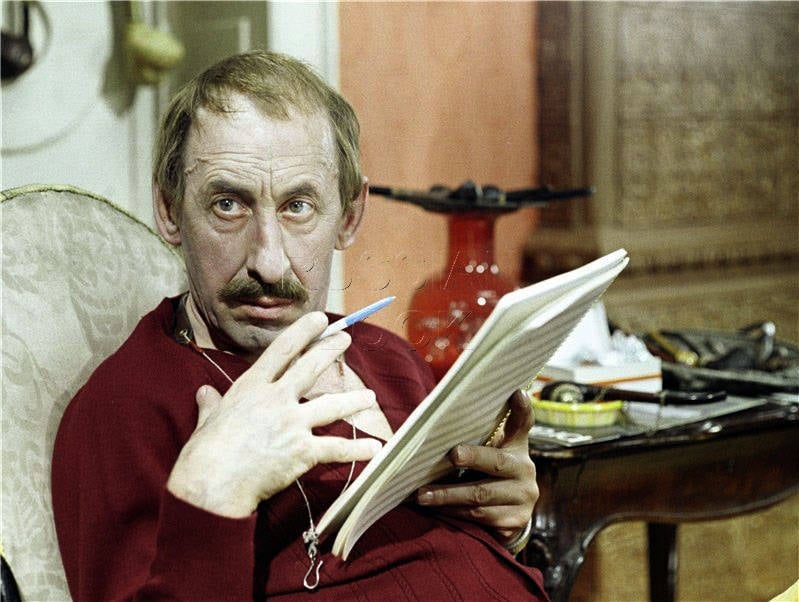
It is worth noting that the four-part "Shield and Sword", which is among the ten highest-grossing domestic films, is without a doubt one of the best Basov films. Filmed on the Kozhevnikov novel, he tells the story of Alexander Belov, a Soviet intelligence officer who managed to penetrate the very top of the fascist leadership. Before starting the shooting, Vladimir Pavlovich demanded that the authorities arrange for him to meet with Soviet intelligence officers - Belov's real prototypes. Such a meeting really took place and brought a clear benefit to the picture. Its important result was the fact that Basov managed to persuade the cinema director to approve Stanislav Lyubshin for the main role. The cinema officials were categorically against this candidacy, because they wanted to see the hero of the hero-actor, with strong muscles and an eagle eye. But the security officers took the side of the director, saying that real intelligence officers are inconspicuous in appearance and never catch the eye. Under this characteristic Lyubshin just fit. The film "Shield and Sword" appeared on the screens of the country in 1968, from the first days becoming the leader of the rental. Four series took from first to fourth places, having collected about seventy million viewers, and Stanislav Lyubshin was named the best actor of the year according to the results of the audience competition.
Between the filming of films, family life Basov was gaining momentum - for an expanding family, he knocked out a new apartment in the very center of Moscow. The children grew up with the roles and pictures of their parents - Titova and Basov always took Lisa and Sasha with them, both for filming and for traveling around Russia on tours. Titova recalled: “The most crucial time in our life came when Basov worked on the script of the next film. Month, and even two, he almost never left his home office. He scribbled something, crossed out, smoked a lot, drank, without ceasing, very "cool" coffee. Basov was “exhausted” and was losing weight literally before his eyes, and then, after the end of forced retreat, he could eat borscht at a time. ” The son of the director, Alexander Basov, said: “My father loved order. He always washed his clothes, starch collars, adored to do the cleaning in the apartment. He could wake up early in the morning and start washing the floors, then he cooked breakfast, washed the dishes and went to the studio ... he was embarrassed to wear his orders. He believed that he didn’t do anything special in the war, he just did like all his male work ... Once his father was asked what his happiest day was. He replied: “I had neither the most unhappy nor the happiest days. If the day of absolute happiness comes, then spiritual death is near. This is not a phrase or a paradox. At the very edge of the fall of happiness, there is more because the ascent begins from here.
It should be noted that Basov loved beautiful things. He had a good taste - Vladimir Pavlovich always chose all the shirts and suits himself. He was also a passionate car enthusiast and a virtuoso driver. He cherished and cherished his cars - he could mess around with them for hours, got up early in order to warm up long before leaving, bought special cases for steering wheel abroad, mirrors and other trifles. His first car, bought immediately after the end of VGIK, became "Moskvich", and later he acquired only the "Volga". Moreover, the machine director delivered directly from the factory. During his life, Vladimir Pavlovich changed four of them. The only one who successfully competed with this was another well-known director Sergey Bondarchuk.
In the seventies, Basov continued to work fruitfully - played as an actor, made new films. He was marked by roles in the films "Crime and Punishment", "Running", "The Adventures of Pinocchio", "For family reasons." As a director, for the same period, he made the films “Return to Life”, “Nylon 100%”, “Dangerous Turn”, “Days of the Turbins”. The trouble, as often happens, came suddenly, becoming a complete surprise for Titova. One day, having left alone for the shooting of the film “Running,” Basov returned as a completely different person. Vladimir Pavlovich gash. For a long time, Valentina Antipovna fought for her husband, took him to the doctors, tried folk remedies, but nothing helped Basov. The last two years of their life together were very hard, and, in the end, Titova could not stand it and filed for divorce. Divorce cost them both dearly - Titov landed at the oncology clinic, and Basov suffered a severe heart attack. The doctor who arrived on the call of the ambulance did not take the state of the director seriously and ordered to take warm baths, which he regularly did for three days until he was hospitalized. In the hospital, the actor spent a month and a half, and then returned to normal life.
Children by the court left with Basov, and in the last years of his life, Vladimir Pavlovich was primarily a model father. From now on, he did all his business with trebled energy. Many in those years it seemed that the actor "multiplied" - and without that noticeable, he filled it in with everything, having managed, among other things, to perform on television and on radio. Without getting tired, Basov starred in the films of his fellow directors. To the question: “When do you have time to read the scripts?”, The actor seriously answered: “I don’t read them either.” Honestly performing his work, Vladimir Pavlovich ensured his children a dignified existence. And they grew up - in search of life's journey Sasha rushed, she dreamed of becoming a ballerina Lisa, enrolling in the Vaganovsky School.
Meanwhile, after the mid-seventies, the creative activity of Basov, as a director, fell noticeably. After removing the "Days of the Turbins" in 1975, he didn’t take anything off for five years - a heart attack happened and a third marriage broke up. For some time, Vladimir Pavlovich was inactive, and returned to directing at 1980, removing a picture based on the Osprey novel “Facts of the Day Past”. In 1982, the film was awarded the State Prize of the RSFSR, a year later Vladimir Basov was awarded the title of People's Artist. And in April 1983, Basov suffered a first stroke. The director had problems with the movement, and he could no longer drive on his own. Vladimir Pavlovich was treated a lot. In the hospital, by the way, he constantly visited Titova - according to the recollections of close people, “she helped with everything, washed the ward, fed with a spoon”.
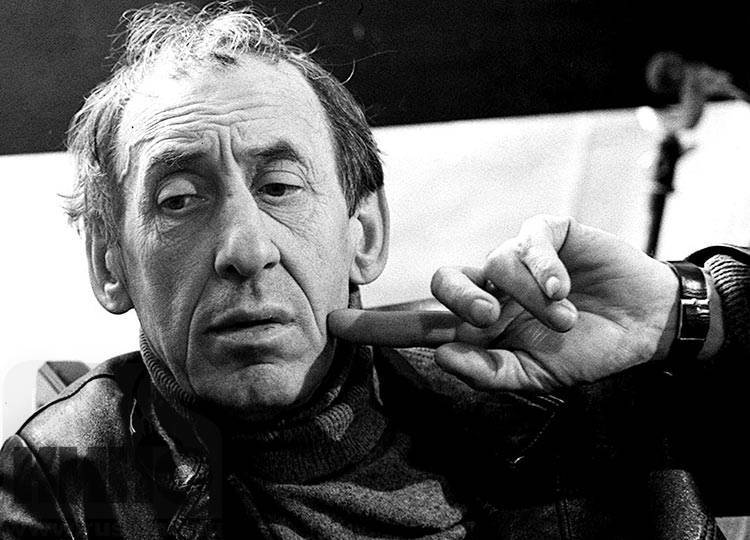
After a stroke, Vladimir Pavlovich began to move with a wand, he quickly got tired and his health deteriorated sharply. However, the actor still went to the studio, where he composed the post of "director-consultant." And Basov was actively working in a new place, without giving anyone a single reason to see him as disabled. Regularly, overcoming physical suffering and pain — Vladimir Pavlovich’s legs grew numb and his hands refused — he continued to go to work. His film “Time and the Conway Family” based on the play of the same name by Priestley became his work. In the life of Basov, this was the last triumph, soon partial paralysis came - Vladimir Pavlovich did not feel more than one arm and one leg. From now on, he was forced to lie in bed almost all the time. The farm was helped by the housekeeper and all the same Titova, who came to clean the apartment. Vladimir Basov died on September 17 1987. Son Alexander wrote: “His father experienced immobility in the hardest way — weakness for him was a real tragedy. He always loved movement, flew, but did not go. The second stroke occurred with him in the bathroom - he went to shave, which he also always did, despite the fact that his hands practically did not obey. He resolutely rejected all attempts at help - until the last moment of his life his father wanted to remain a man. He began to shave and suddenly began to fall. I caught him, and he died in my arms. ”
There is a monument on Basov's grave in Novokuntsevskoye cemetery: a marble slab on which two pieces of film are crossed — either a window stuck in a military way, or an army chevron, or a “crossed out” editing frame, or a crossroads, or “wind rose” . Significance, as in the greatest director, - interpret, as you see, everything is permissible, because life is infinite. On one of the "tapes" the inscription is made: "The streams of human fates merge into one raging channel."
Based on the materials of the book by L. Bogdanova “Vladimir Basov. In directing, in life and love "and the site http://www.vladimirbasov.ru
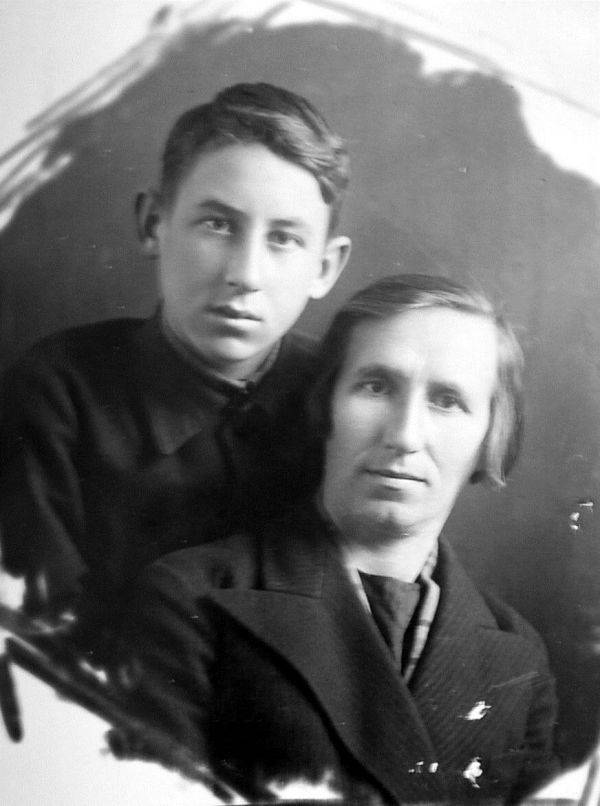
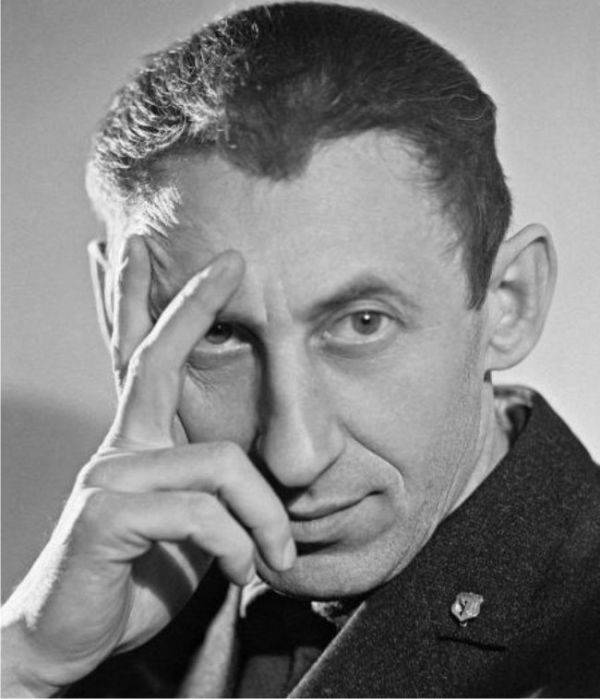
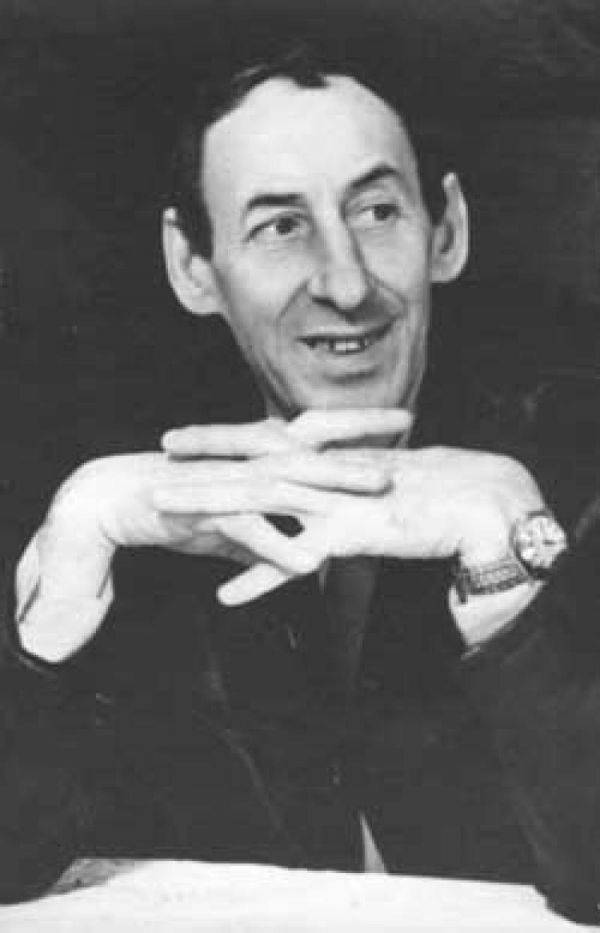
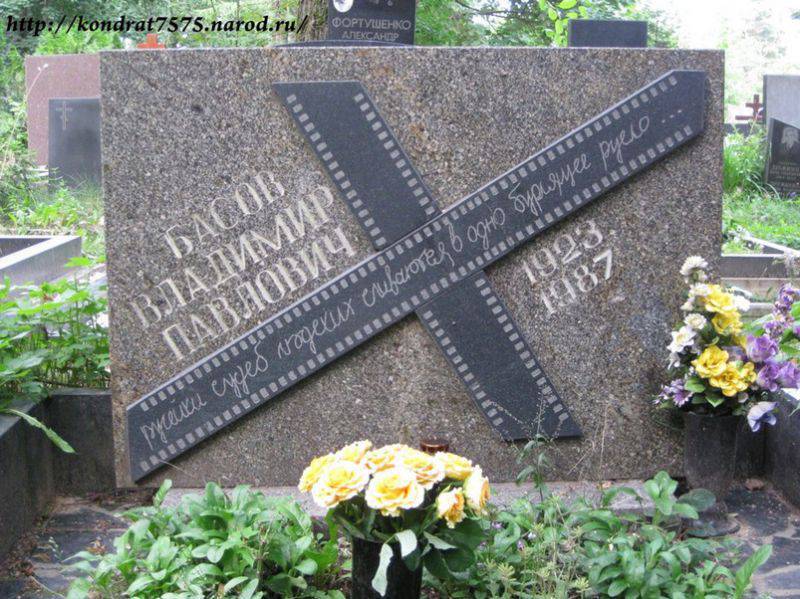
Information